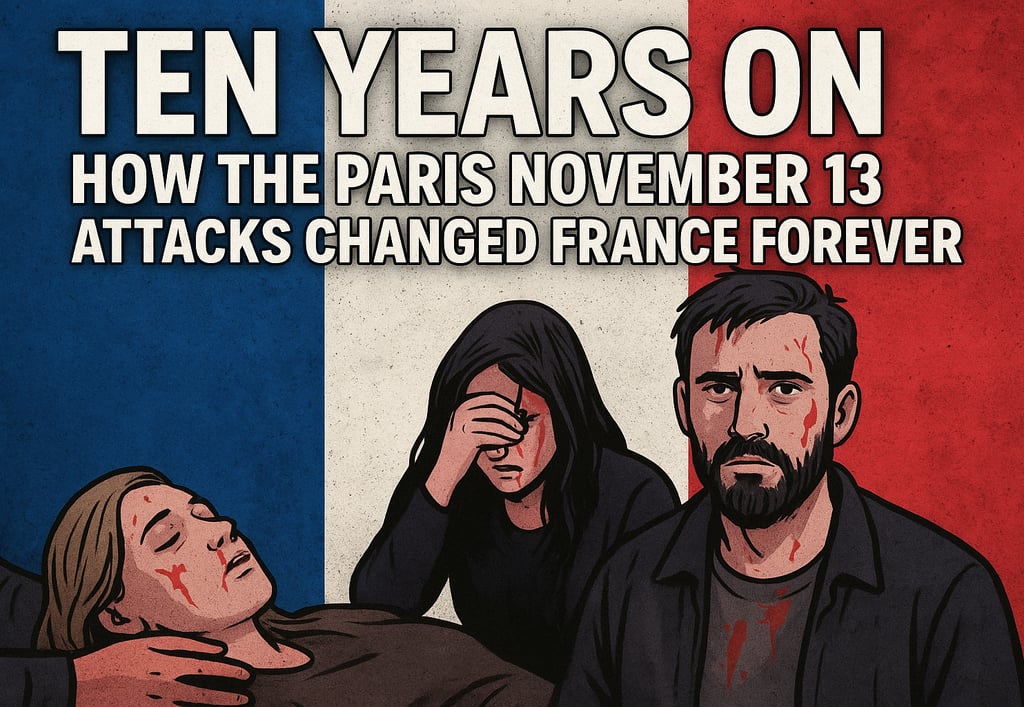Ten Years On: How the Paris November 13 Attacks Changed France Forever
On Nov 13, 2015, Paris suffered deadly terror attacks. Ten years later, France still feels the impact — survivors, society, and security remain transformed.
Raja Awais Ali
11/10/20252 min read


Ten Years On: How the Paris November 13 Attacks Changed France Forever
On the evening of November 13, 2015, coordinated terrorist strikes in Paris left the nation in shock. That night, 130 people were killed and hundreds more injured as attackers targeted theatres, cafés, and the national stadium.
The attack on the concert hall (Bataclan) left a deep mark. One survivor, Sébastien Lascoux, recalls being immersed in music when militants stormed the venue, opening fire and killing scores of people. Even today, he avoids crowded and enclosed spaces and struggles with loud sounds that trigger memories of gunshots. “A part of me died that night and stayed in the Bataclan,” he said.
His story is emblematic of countless others: the victims, first‑responders, and even neighbours who lived through the chaos that night. One family turned their apartment into a makeshift infirmary, treating the wounded just hours after the attack.
In the years since, France has accepted that the threat it faced was not temporary. Security measures once viewed as exceptional have become part of everyday life: soldiers on patrol outside schools, enhanced surveillance, and a heightened public sense of alert. The capital, Paris, is now often described as a “wounded city” — a place where memory, resilience, and fear coexist.
With the 10th anniversary of the attacks approaching, memorial events are in full preparation. The national football federation plans to honour the victims during a match in Paris — players will wear symbols of remembrance, a minute’s silence will be held, and fundraising efforts will focus on solidarity.
For many survivors and families, life did not simply resume after the attack — it changed permanently. Some carried visible scars, others invisible ones. Mental health professionals warn of lasting trauma: anxiety, avoidance of public spaces, and long-term disruption of daily routines. Even with government support and aid organizations, many still feel isolated.
The decades ahead may offer healing, but the legacy of November 13 lives on. It reshaped France’s policies, priorities, and society. The night of the attacks exposed a vulnerability that the country now carries with it. While the wounds may gradually fade, vigilance remains — and for France, this memory is as much about the future as it is about the past.
Stay informed with the latest national and international news.
© 2025. All rights reserved.